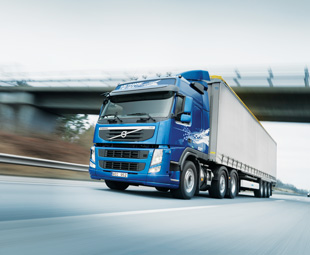Oh please can we go green?

I am finally sensing more of a willingness among operators to go green. I just wish that government would come to the party …
Shhhhhh … don’t tell a soul; I am becoming a bit of a bunny hugger. I do still use deodorant. Pinky promise. I am, however, one of those weirdos who arrive at a supermarket armed with shopping bags.
If I forget them in the boot, I load my groceries into the trolley (you should see the really strange looks I get in posh places). I abhor the idea of buying plastic bags. This is not because of the 50 c, or whatever it is they cost. I mean … really … thanks to the gymnastics of our currency, R50 is almost worth nothing; 50 c is a paltry price to pay for a bag.
Buying one, however, defeats the object of the exercise – we are supposed to be ridding our country of those blasted things! We are not meant to be spending the 50 c and adding to the problem!
Now, as we all know, our wonderful industry also does its fair share of adding to our planet’s woes. And, honestly speaking, until such time as government catches a wake-up, that’s not really going to change. Sure, there are some massively enterprising and brave operators out there who are doing their damnest to go green. I salute them! They are, however, few and far between.
The reason why is simple: while it makes sense, it often just doesn’t make cents. Going green is often too expensive.
It can be done … but government needs to ease the way, rather than make it more painful. Recently I was invited to a business breakfast and one of the guests – a well-known transport operator – visibly showed his frustration with government. He had been trying to “go green” … and had been venturing down the biofuels path, but, he said, it was fraught with challenge after challenge.
“I received absolutely no assistance from government, whatsoever. I wasn’t actually looking for aid, or financial support! I would have just appreciated a helping hand! Instead, all that happened was that government put obstacles in my way,” he bemoaned.
That fleet, which was looking to go the biofuels route, is now destined to use diesel for the conceivable future. This is not because management wants to; it’s a case of sink or swim – in diesel.
I am fortunate to travel a lot. I have, therefore, come across many case studies whereby governments actively support green initiatives. We all know the drill; tax incentives and the like.
I was in Norway recently and the incentives were so appealing that electric cars have become as common as Vikings (in the good old days). This has meant that government has had to withdraw some of the privileges … electric cars aren’t allowed to travel in bus lanes anymore, for instance.
That was only logical – Teslas were becoming a dime a dozen and those lanes were simply too congested, but my point is that sales of those electric cars were bolstered by government initiatives … and not just the desire of motorists to do the right thing.
Meanwhile, back in South Africa, we still languish with gazillions of Euro-2 trucks on our roads …
Published by
Focus on Transport
focusmagsa




